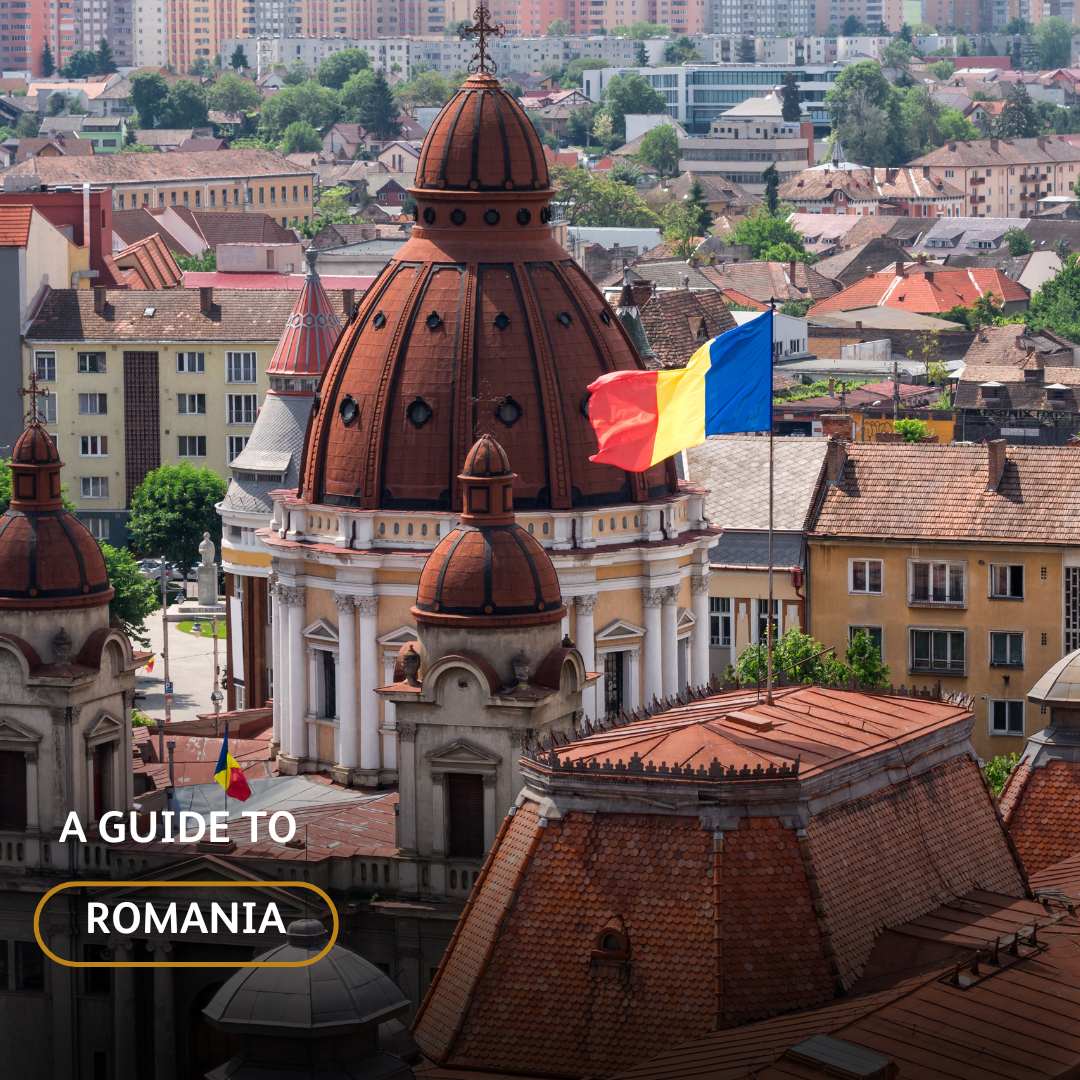A guide to Romania
August 26, 2024 Reading Time: 10 minutes
Romania Guide
Our colleagues at Top Estate Team, the newest addition to the Chestertons Global Network, have written this insightful guide to the beautiful country in which they reside and work - Romania.
History
Romania has a rich and complex history, with deep roots in antiquity. The territory was inhabited by the Dacians, known for their bravery against the Roman Empire. In the Middle Ages, Romania was divided into three principalities: Wallachia, Moldavia, and Transylvania. In 1859, Alexandru Ioan Cuza united Wallachia and Moldavia, forming modern Romania. In 1918, Transylvania united with Romania, marking the Great Union. After a period of communist dictatorship, Romania became a democracy in 1989.
Local Traditions
Romanian traditions are rich and varied, reflecting the country’s cultural diversity. Folk festivals are marked by music, dances, and colourful traditional costumes. Holiday customs, such as Christmas caroling and Easter egg decorating, are cherished. Romanian villages preserve ancient crafts, like pottery and weaving. Each region has its own traditions and customs, influenced by local history. Romanians are proud of their cultural heritage and actively promote it.
Food
Romanian cuisine is a delicious blend of Balkan, Turkish, Hungarian, and German influences. Traditional dishes include sarmale (cabbage rolls with meat), mămăligă (corn porridge), and mici (small sausages). Soups, such as ciorba de burtă (tripe soup) and ciorba rădăuțeană (chicken soup), are highly appreciated. Romanian desserts, like cozonac (sweet bread) and pies, are staples at festive meals. Wines and țuica (a traditional plum brandy) complement the culinary experience.
Business
Romania has experienced significant economic development in recent decades, attracting major foreign investments. The IT sector is one of the most dynamic, with the country being known for its talented specialists. Bucharest, Cluj-Napoca, and Timișoara are major economic centres where businesses thrive. Modernising infrastructure and low operational costs are attractive to investors. Romania is a member of the European Union, benefiting from access to a large market and European development funds. Challenges include bureaucracy and the need for ongoing structural reforms.
Agriculture
Agriculture remains an important sector in Romania's economy, with a wide variety of crops and products. Romania's fertile lands allow the cultivation of high-quality cereals, vegetables, and fruits. Wine production and livestock farming are also well represented. Many farms are still small and traditional, but there is a trend towards modernisation and mechanisation. European funds have contributed to the development of organic agriculture and improvement of rural infrastructure. Agriculture plays a crucial role in supporting the local economy and preserving rural traditions.

Development
Romania is investing significantly in its infrastructure to support economic growth and European integration. Highway projects, modernisation of railways, and development of maritime ports are priorities. The energy sector is diversifying, with a focus on renewable sources such as wind and solar power. Education and healthcare are key areas where efforts are being made to modernize and improve efficiency. In the IT sector, Romania is becoming a regional hub, attracting international companies and startups. Challenges remain, but the development outlook is positive.
Rural versus Urban
Romania is characterised by a strong contrast between rural and urban life. Large cities like Bucharest, Cluj-Napoca, and Iași offer diverse opportunities and a fast-paced lifestyle. Villages and communes maintain a traditional lifestyle, with close-knit communities and predominant agricultural activities. Urbanisation is on the rise, but many rural areas face depopulation and lack of modern infrastructure. Rural traditions and culture are valuable but require support to be preserved. Balanced development between rural and urban areas is essential for Romania's progress.
Nightlife
Nightlife in Romania is vibrant and diverse, with options for all tastes. Bucharest is renowned for its top clubs, bars, and restaurants. Cluj-Napoca and Timișoara are also known for their lively party scenes and cultural events. Music festivals like Untold and Electric Castle attract thousands of young people from around the world. Many cities offer traditional pubs, jazz clubs, and bohemian meeting places. Romanian nightlife is marked by hospitality and cultural diversity.
Real Estate
The real estate market in Romania is dynamic, especially in large cities and tourist areas. Bucharest is a major center for real estate investments, with high demand for housing and commercial spaces. Cluj-Napoca and Timișoara are also attractive to real estate developers due to rapid economic growth. The residential sector sees constant demand for both purchases and rentals. Urban regeneration projects and luxury developments diversify the market. Foreign investments and European funds stimulate growth and modernisation of the real estate sector.